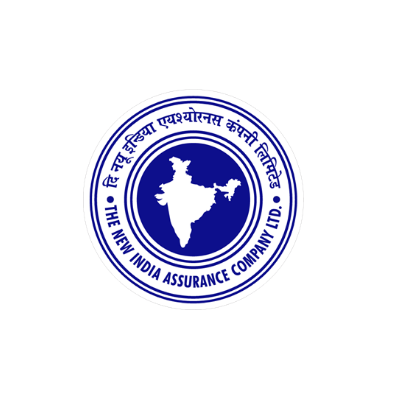WHAT ARE RIDERS AND HOW THEY WORK IN INSURANCE
A rider meaning in insurance is nothing but an excess profit over a base policy in life insurance. Technically, a rider is an additional provision or an amendment to an existing insurance policy that brings forth extra coverage or advantages.
Riders permit policyholders to customize their health insurance plans by adding precise protections that are not covered in the standard policy. Now let’s get into the depth of riders in the insurance concept.

Key Features of riders in insurance
Here are some important features of riders in insurance.
- Customizable coverage: Riders allow policyholders to modify their base insurance policy to meet their individuals’ requirements.
- Additional cost: Usually, adding a rider requires an extra premium payment, even if it is often more cost-effective than purchasing a separate policy.
- Eligibility criteria: Riders can have particular eligibility requirements, such as age or health conditions, which must be met before they can be added to a policy.
- Supplemental Benefits: Riders contribute to deliver the additional benefits that are not typically available in the base policy, like coverage for critical illness or accidental death.
- Cost-effective Protection: Riders present targeted improvements to the base policy, frequently at a lower cost than buying a standalone policy for the similar coverage.
- Flexibility: Riders can be removed or added as per the policyholder’s requirement. You can choose riders based on your life stage, financial objective, and specific needs.
- Term Limits and Renewability: Along with the base policy, riders in health insurance are renewable. But they may have their own terms and conditions, including expiry dates.
Understanding these principal characteristics helps policyholders to select riders that deliver meaningful benefits for their particular needs.
Types of Health Insurance Riders
Various life insurance riders are,
- Accidental Death Benefit Rider: Caters an additional payout if the policyholder dies due to an accident.
- Critical sickness Riders: Shelter major health complaints like cancer, stroke, or heart disease, offering a lump sum upon diagnosis.
- Waiver of Premium Rider: Waivers future premiums if the policyholder becomes disabled or critically sick.
- Income benefit Rider: Delivers a consistent income to the policyholder’s family in case of death or disability.
- Term Conversion Rider: Permits conversion of a terms policy into a permanent policy without undergoing a medical exam.
Factors to Consider Before Adding Riders in Health Insurance
You can think of following key points before adding riders to your policy are-
1. Health and Eligibility
Riders like critical illness or waiver of premium can have medical underwriting. You have to consider your current health status before adding such riders.
2. Cost of Rider
Riders do have additional premiums. You can compare the cost of the rider with the potential benefits. Confirm it fits within your budget and drive good value for money.
3. Terms and Conditions
You need to review the terms and conditions, exclusions, and limitations of the rider carefully. Acknowledge the circumstances under which the rider will provide benefits.
4. Claim Process
Validate the claim process for the rider is simple and aligns with the base policy. In addition to this, you also need to verify the documentation required to claim the benefits.
5. Coverage Duration
Check whether the rider’s terms match with your life insurance policy duration or personal requirements. Some riders can expire before the main policy ends.
6. Relevance to Your Needs
Examine your current life stage, financial responsibilities, and health risks. Select riders that address specific gaps in coverage, such as critical illness, accidental death, or disability.
7. Advice from Experts
You can consult with an insurance advisor or financial planner to ensure the rider aligns with your all in all insurance and financial goals.
8. Elect other Options
You can compare standalone policies with the rider’s benefits. Sometimes, a separate policy might prove better or give better coverage.
All these aspects one should keep in mind while adding riders to the policy. As riders can remarkably improve your insurance coverage. So, careful evaluation of your needs, affordability, and the policy’s terms and conditions also get studied. Furthermore, you should bypass overloading your policy with the needless riders and concentrate on the ones that truly add value.
How Riders Work in Health Insurance?
Insurance riders are add-ons to a standard insurance policy that brings forth an additional coverage for specific needs. Here’s how they work-
Typically, riders can be added when purchasing the policy or during renewal. The policyholder selects the rider based on their requirements and agrees to pay an additional premium. Riders beg for an extra cost which depends on factors such as type of rider, age of policyholder, health, and lifestyle. Riders are triggered by particular events or conditions outlined in the policy.
For instance, a Critical Illness Rider activates when the policyholder is diagnosed with a covered illness (e.g. heart stroke, cancer).
An Accidental Death Rider delivers an additional payout if death occurs due to an accident. On the event of qualification, policyholders need to inform the insurer about the event (for example accident, disability, diagnosis) and regarding the diseases not covered under health insurance.
In the rider's claim process, required document submission can be held. Medical reports., death certificates, or proof of disability have to be submitted. Once verified, the insurer pays the rider benefit as per the terms and conditions. Riders expire within a specific duration which depends on the base policy. But Child rider expires when a child reaches a certain age.
Conclusion
Riders are valuable tools to enhance your insurance coverage, offering peace of mind by addressing specific risks. However, it's essential to assess your needs, read the fine print, and consult with an insurance advisor to make informed decisions.
Health Insurance Riders- FAQs
1. Can I buy Riders with all types of Insurance policies?
Yes. You can. Individual policies in India may have different terms from Group Life Insurance policies. So, you need to survey before adding riders to the policy.
2. Does adding riders increase the premium?
Yes, adding riders to policy increases the premium. Because, it provides supplementary coverage beyond what policy offers.
3. Can I add riders to the existing policy?
Yes. Nowadays, new plans have been introduced that permits you to add riders in an existing policy.
4. What happens to a rider if I cancel the base policy?
Rider typically gets canceled if you cancel the base policy. Because riders are add-ons to the prime policy and are not standalone products.
5. Are riders transferable when I switch insurance providers?
No, riders are tied to the terms and conditions of the base policy. So, riders are not transferable when you switch insurance providers.
6. Are riders beneficial compared to standalone policies?
Riders and standalone policies serve different purposes. So, their benefits rely on your budget, coverage requirements, and specific needs. You can evaluate your financial situation and long-term goals to decide which option is better for you.
7. Can I have multiple riders in one insurance policy?
Yes, you can have multiple riders in a single insurance policy, provided the insurance company offers them.




































